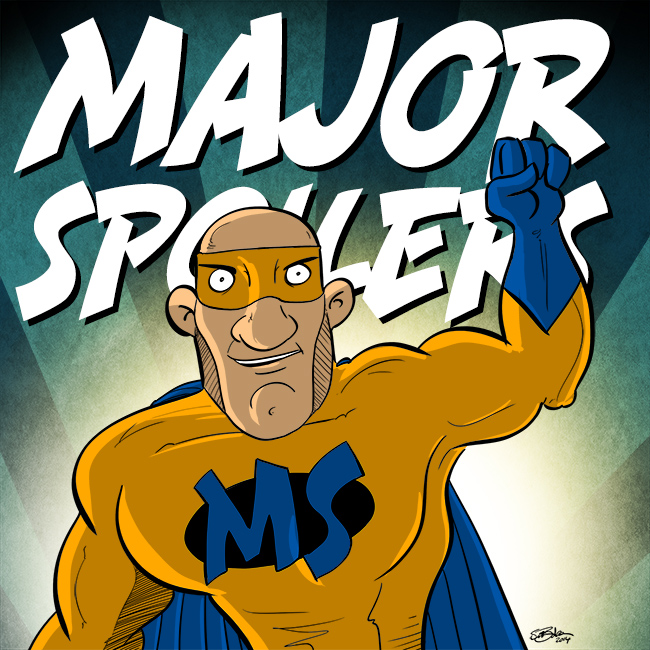This week on the Major Spoilers Podcast – COMICS AS MORAL PORNOGRAPHY!? Dr. Peter Coogan from the Institute for Comics Studies stops by to talk about why it is good to be bad.
Get involved with the Major Spoilers Podcast Network LINK
- Direct Download
- Subscribe via iTunes
- RSS Feed
- Subscribe to the Major Spoilers Podcast Network Master Feed!
- Major Spoilers Podcast Network Master Feed RSS Feed
- Listen to the Major Spoilers Podcast on Stitcher
- Show your thanks to Major Spoilers for this episode by becoming a Major Spoilers VIP. It will help ensure The Major Spoilers Podcast continues far into the future!
Dr. Peter Coogan
Peter Coogan gained a doctorate in American Studies from Michigan State University, with his dissertation “The Secret Origin of the Superhero: The Emergence of the Superhero Genre in America from Daniel Boone to Batman” (2002), which he revised for wider publication in 2006.
He coined the term Wold-Newtonry in a paper titled “Wold-Newtonry: Theory and Methodology for the Literary Archeology of the Wold Newton Universe.” In it, he talks about literary archaeology, a term which he says was inspired (for him) by Warren Ellis’s term mystery archeologists in Ellis and Cassaday’s Planetary comics. The paper is available online at Philip José Farmer’s Wold Newton pages, and as a chapter in Win Scott Eckert’s (Ed.) Myths for the Modern Age book, published by MonkeyBrain Books.
Coogan co-edited (with Randall William Scott) the Comic Art Studies newsletter and also set up the Comics Studies Email service to “coordinate communication about comic scholarship.”[6] The newsletter’s motto was Comica Amica Nobicum (“Comics Are Our Friends!”) and originated from the Russel B. Nye Popular Culture Collection, to “facilitate communication about the Comic Art Collection at Michigan State University, and communication about public comics collecting and scholarship in general.”
In 2005, Coogan presented a paper titled The Definition of the Superhero
at the interdisciplinary Holy Men in Tights Superheroes Conference at the School of Art History, Cinema, Classics & Archaeology (AHCCA), University of Melbourne in Melbourne, Australia.
Our Superheroes, Ourselves
Superhero fans are everywhere, from the teeming halls of Comic Con to suburban movie theaters, from young children captivated by their first comic books to the die-hard collectors of vintage memorabilia. Why are so many people fascinated by superheroes?
In this thoughtful, engaging, and at times eye-opening volume, Robin Rosenberg–a writer and well-known authority on the psychology of superheroes–offers readers a wealth of insight into superheroes, drawing on the contributions of a top group of psychologists and other scholars. The book ranges widely and tackles many intriguing questions. How do comic characters and stories reflect human nature? Do super powers alone make a hero super? Are superhero stories good for us? Most contributors answer that final question in the affirmative. Psychologist Robert J. Sternberg, for instance, argues that we all can learn a lot from superheroes-and what we can learn most of all is the value of wisdom and an ethical stance toward life. On the other hand, restorative justice scholar Mikhail Lyubansky decries the fact that justice in the comic-book world is almost entirely punitive, noting extreme examples such as “Rorschach” in The Watchmen and the aptly named “The Punisher, who embrace a strict eye-for-an-eye sense of justice, delivered instantly and without mercy.
[signoff predefined=”PayPal Donation” icon=”icon-pin”][/signoff]





3 Comments
What podcast was it?!?
Fortunately, not yours ;)
I’m chiming in late here, but I just wanted to say that this discussion really helped me parse through my conflicted feelings over loving my favorite show, Game of Thrones, which never fails to make me question my own morals for loving it so much.